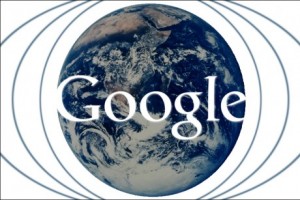This June 2013, Google filed a motion to dismiss the class action lawsuit brought against the company in federal court. In this action, Plaintiffs claim that Google’s automated scanning of emails violates privacy and wiretapping laws. Google asserts that the scan is used solely to filter spam and target advertising. In the Plaintiffs’ eyes, the automated scanning is an unnecessary and obtrusive way of prying on private communication without consent.
In its motion to dismiss, Google cited Supreme Court case Smith v Maryland and wrote, “a person has no legitimate expectation of privacy in information he voluntarily turns over to third parties”. Google believes that because it needs advertising to make a profit, the exchange of free email service for automated scanning ability is warranted. On the other hand, Sean Rommel, co-counsel for the Plaintiffs, suggested that Google could be accumulating data for purposes other than advertising.
This search engine power house claims more than half of the world’s share of searches and is one of the world’s top email providers, among Hotmail and Yahoo. There are 425 million Gmail users around the world whose incoming email is being scanned by Google, whether or not the sender is also a Gmail user.
Judge Lucy Koh has not yet made a decision on the motion to dismiss, but she previously expressed an objective to schedule a trial date for 2014. Her decision on the matter could affect the business practices of other free email providers.
Internet privacy concerns have escalated this year after Snowden leaked United States National Security Agency surveillance documents. Is this California based company giving international users another reason to distrust U.S. surveillance practices? Are privacy advocates right to worry over this issue or are Gmail users implying consent to a justified business practice?
Sources
- Google Argues for Right to Continue Scanning Mail (Associated Press, Sept. 5, 2013)
- Google: Gmail Users Have No Expectation of Privacy (CBS News, Aug. 14, 2013)
- Google Still World’s Most Popular Search Engine (Search Engine Land, Feb. 11, 2013)
- Gmail Finally Beats Hotmail, According to Third Party Data (Gigaom, Oct. 31, 2012)
Picture
It’s Google’s World We Just Live in it (Salon, Feb. 10, 2010)

The answer to the first question above regarding U.S. surveillance practices is certainly not clear cut. In one corner you can say that the Snowden situation coupled with the email scanning is giving our country a bad reputation because citizens privacy is being seriously infringed upon not only by private companies, but by the United States government itself. Privacy infringement is bad enough, but when it is done by your own government on its own citizens, that is just adding fuel to the fire. It is certainly not a good thing and the trust of government by U.S. citizens will begin to deteriorate if more events similar to this continue on occurring.
In the other corner, you have advocates saying that people knowingly use Google’s services and know the ramifications that come along with using them. They may say that Google is a business and needs to make the most efficient use of its resources. Further, if scanning emails is considered legal because they are a third party, then Google, or any other related company will do whatever it can to maximize its use of resources.
This area of law has become a huge center for debate because many people see their personal information being stolen, violated and infringed upon on regularly. Whatever side you may be on, there needs to be a nexus between the privacy of an individual, and the need for that individual’s information.
It is not surprising that Google’s automated scanning of emails would raise major privacy concerns. Even though privacy is not expressly written in the Constitution, the Supreme Court has on many occasions stated that the right to privacy exists within the penumbras of the bill of rights. Privacy is very important to Americans and I believe that Google might be taking it too far. Google submitted a motion to dismiss and cited a Supreme Court case Smith v. Maryland. However, Smith is distinguishable because it is a criminal case involving a robber, and evidence that was extracted from a pen register. But presently, what Google is doing is different. Although I agree “a person has no legitimate expectation of privacy in information he voluntarily turns over to third parties,” in this case, Americans who is sending emails are not voluntarily turning information over to a third party. If I send and email to you, the only person I am volunteering the information within the email to is you, not a third party like Google. If the police needed to obtain information from Google in a criminal case with a warrant, then I believe that the police should be able to retrieve the necessary information, but I do not think that Google’s theory of implied consent is justified.
Google makes its money by infringing on peoples rights to privacy. Every time you do a web search or use any of it’s other services, like Gmail or Google Docs, they track you and build an advertising profile based on the websites you visit. Privacy conscious individuals have long been aware of Google’s covert tactics and the real reason behind providing these ‘free’ services. For instance, if you turn off tracking cookies in your web browser Google simply doesn’t let you use these services. It really comes as no surprises that Google users have “no legitimate expectation of privacy” – it’s how they do business.